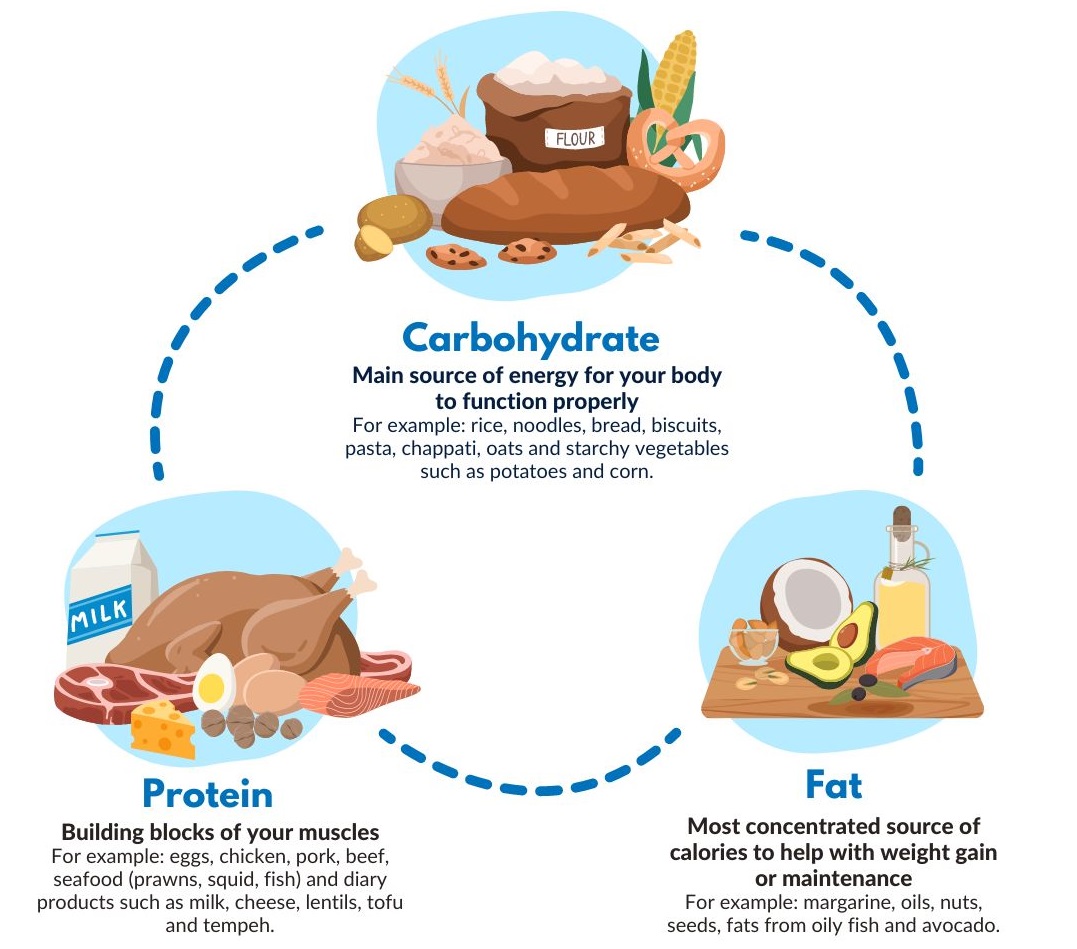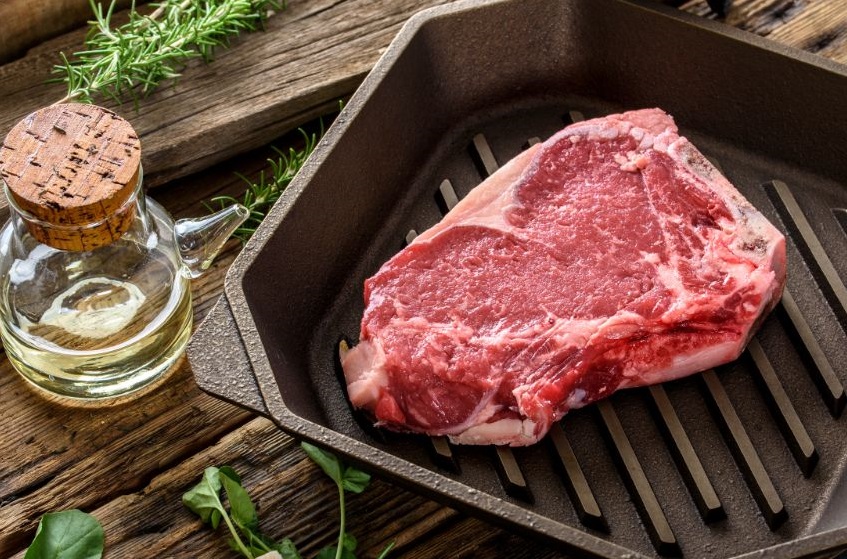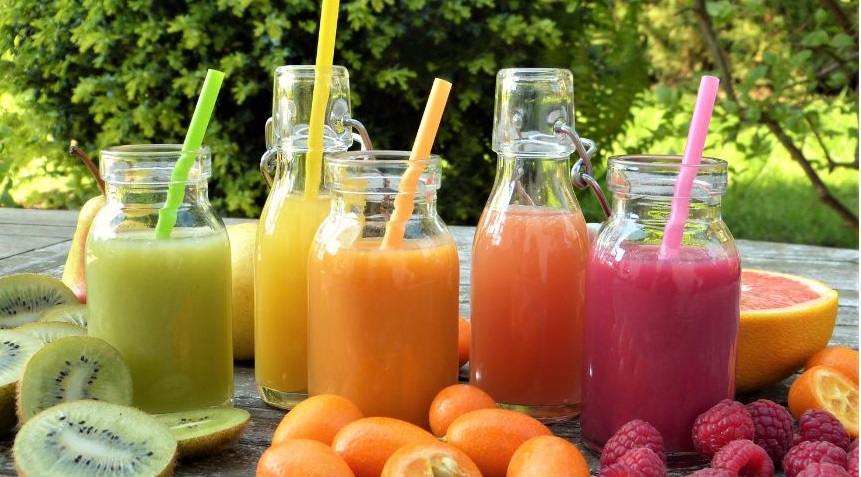NUHS Institutions will NEVER ask you to transfer money or disclose bank details over a call.
If in doubt, call the 24/7 ScamShield helpline at 1799, or visit the ScamShield website at www.scamshield.gov.sg.

Having a balanced and healthy diet, which provides the essential nutrients and calories is usually not a problem in healthy individuals. However, it becomes challenging for cancer patients as the illness and treatment side effects can reduce one's tolerance to foods. This makes getting the adequate nutritional needs a difficult task. Without adequate nutrition, cancer patients may feel too weak and deemed unfit to continue the treatment.
Eating well during treatment can help cancer patients:
During cancer treatment, patients are encouraged to include a variety of foods in their diets, mainly from carbohydrate, protein and fat.

Fruits and vegetables should be included in at least two meals a day as they provide fibre to promote regular bowel movement and essential vitamins and minerals.
Please note: It is important to avoid imposing unnecessary restrictions on your diet as no single food contains all the nutrients you need.
| Potential treatment side effects | What you can try to do |
|---|---|
| Loss of appetite |
|
| Nausea and vomiting |
|
| Diarrhea or constipation | Hydration is key for both! Aim to drink at least 8 glasses of fluids a day, unless advised otherwise by your doctor. Diarrhea:
Constipation:
|
| Change in taste |
|
| Sore mouth or mouth ulcers |
|
| Difficulty in swallowing |
|
There are many dietary myths surrounding the topic of cancer. They often cause unnecessary confusion and anxiety amongst cancer patients.
Myth 1: Does sugar feed cancer cells?

Sugar (glucose) is the main source of fuel for all cells regardless if they are healthy or cancerous. Avoiding sugar or limiting carbohydrate intake does not necessarily reduce cancer cell growth as your body will use the stored protein and fat as fuel instead.
Over time, this results in rapid weight loss and ultimately leading to malnutrition. It is recommended to include carbohydrates in your main meals. Only those with diabetes are advised to avoid refined sugars.
Myth 2: Does red meat cause cancer?

There is strong evidence that excessive consumption of red or processed meat can cause colorectal cancer. However, red meat including beef, pork and lamb can be good sources of protein, iron, zinc and vitamin B12, hence it is not necessary to avoid completely.
It is recommended that you limit the intake of red meat to 500g (cooked weight) or up to 750g (raw weight) per week and avoid processed meat entirely.
Myth 3: Can juicing help me fight cancer?

Studies have shown that those who consume more fruits and vegetables have a lower risk of cancer. Juicing may help you to consume large amount of fruits and vegetables quickly but you can only reap the benefits of nutrients such as fibre by eating them in whole.
There is no scientific evidence to prove that juicing can help to fight or cure cancer, especially once cancer has been diagnosed. It is recommended to consume 2 servings of fruits and vegetables daily for healthy gut movement and vitamins and minerals.
When cancer patients are facing the following side effects or are confused over what food to eat and avoid:
Our team of experience oncology dietitians can help to:
Feel free to ask your doctor for a dietitian referral to help address all your nutrition-related issues!